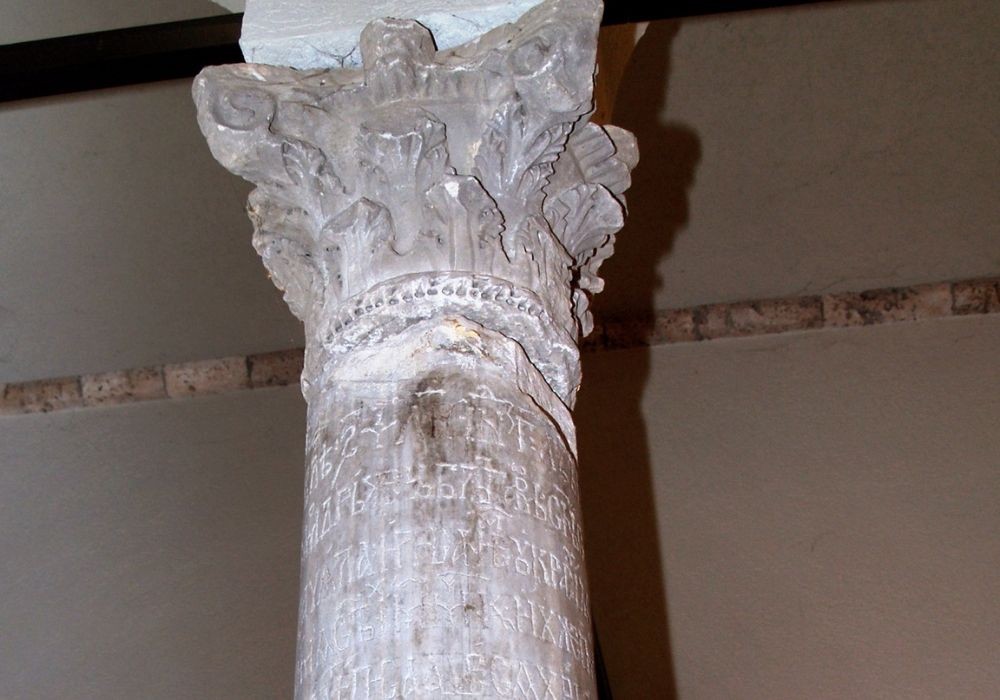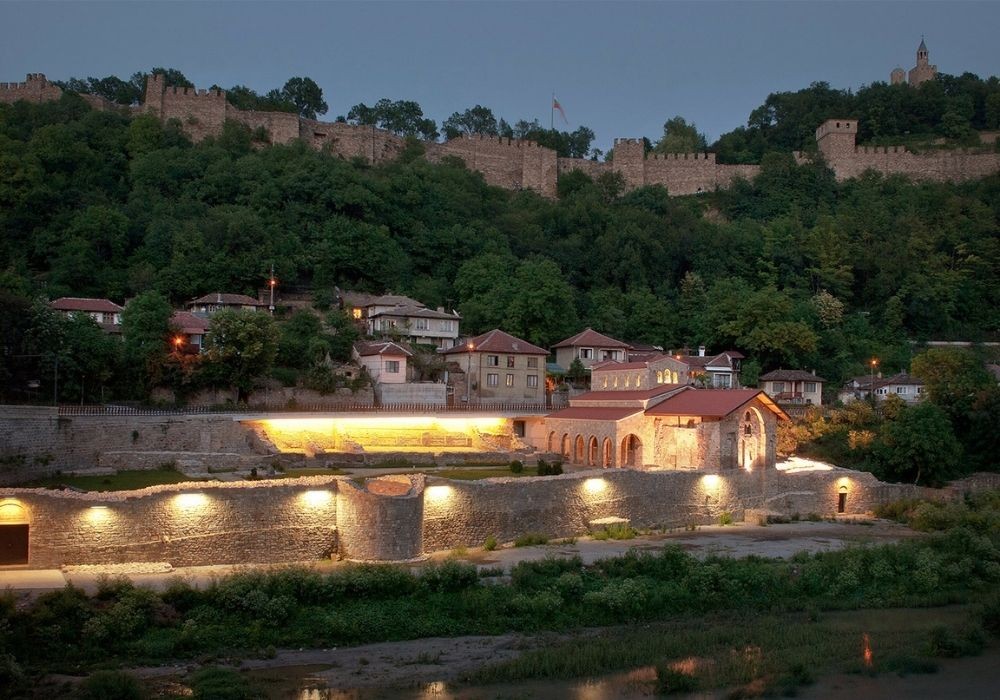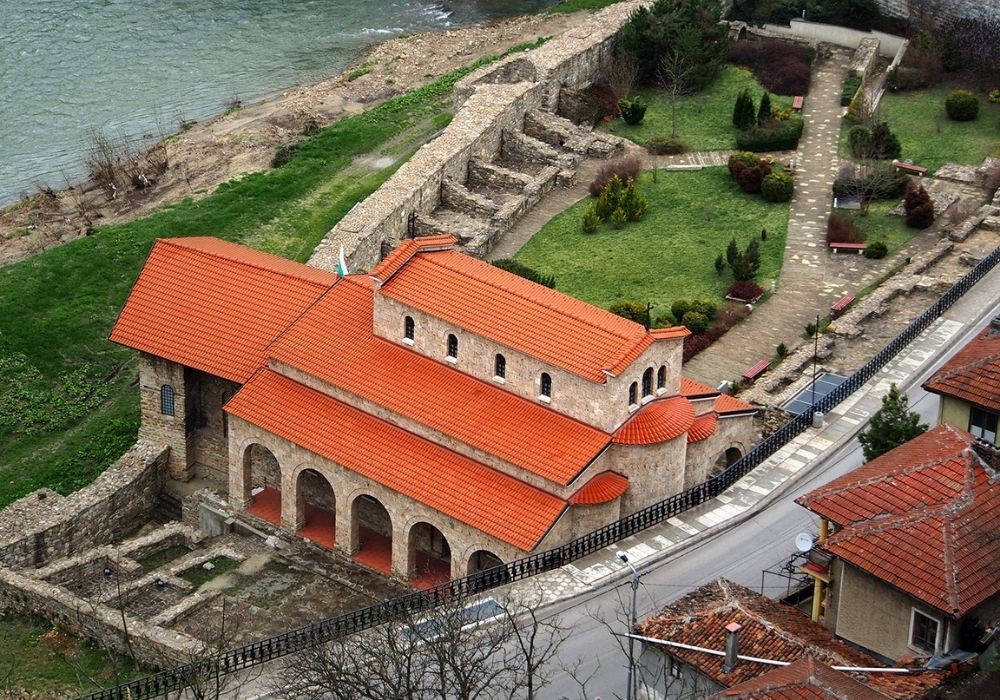The medieval temple of The Holy Forty Martyrs in the town of Veliko Turnovo keeps priceless historical evidences of the greatness of Bulgarian rulers.
Among them are the columns of Khan Omurtag (815-831) and of Tsar Ivan Asen II (1190-1241), the last one with the famous 13 lines inscription in Bulgarian announcing the great victory of the Bulgarians at Klokotnitsa.

The graves of Tsar Kaloyan (1197-1207) and Tsar Ivan Asen II and his wife Anna Maria were discovered during archaeological works at the temple. "Ivan Asen II was one of the greatest Bulgarian rulers. In his time Bulgaria bordered three seas and was a great empire in the Balkans," says Dr. Ivan Tsurov, director of the The Regional Museum of History in Veliko Tarnovo.
Upon returning from the victorious war, the ruler was convinced that indeed the holy 40 martyrs had been on his side and that they had supported his army in the heavy battles.
"From then on, the church The Holy Forty Martyrs became the main temple of the metropolitan city of Tarnovo, besides the Patriarchal Church on the top of Tsarevets Hill, which was the mother church of Christianity in Bulgaria at that time," the historian said. In mid-thirteenth century, the royal monastery "The Great Lavra" was built around the temple.

"The church was a Monastery temple until the 15th century, when it was transformed into a mosque /by the Ottoman invaders - ed./. It was used as mosque until the beginning of the 19th century.
It is remarkable that the tsars of the Asenevtsi dynasty, their wives and close relatives were all buried in this temple. Unfortunately, when it was turned into a mosque, all the tombs were destroyed.
Relatively few artifacts have survived to the present day. The most notable, however, is the tomb of Bulgarian Tsar Kaloyan, along with the famous Kaloyan Ring Seal. This is the only known royal tomb from the Middle Ages on the territory of Bulgaria. There is another tomb on the island of St. Achilles in Greece - of the great Tsar Samuel, but it is outside the borders of Bulgaria, "- says Dr. Ivan Tsarov.
The earthquake of 1327 г. almost flattened the church to the ground. It was restored in the 14th century and renovated several times ever since.
Despite the calamities of time, The Holy Forty Martyrs preserves fragments of a pictorial calendar, most probably from the second half of the 13th century. It is invaluable record of the tradition of the Turnovo school of art, which had a profound influence on the development of Bulgarian art up to the 17th century.

The Church of The Holy Forty Martyrs is associated with another significant event in Bulgarian history. On 22 September 1908, in the church's courtyard, Prince Ferdinand proclaimed with a Manifesto the Independence of Bulgaria after five centuries of Ottoman rule.
"The church was restored at the beginning of the 21st century," explains Dr. Tsarov, "In 2005, after 30 years of restoration work, it was reopened to visitors.
Every year the march for the holiday of Veliko Tarnovo (22 March) starts from this church and continues to Tsarevets Hill. Christian rituals are also held there, in all, it is a very interesting and well-visited place".
English version: Elizabeth Radkova
Photos: Regional Museum of History in Veliko TarnovoVolunteers joined the efforts to clean and restore the monastery St. Spas near Bakadzhik peak. The campaign is being organized on 2 November by Stoimen Petrov, mayor of the nearby village of Chargan, the Bulgarian news agency BTA reports. The..
There are three special days on the calendar of the Bulgarian Orthodox church, on which believers pray to God and give alms to honour the memory of their dear departed. The three All Souls’ Days always fall on the Saturdays before Meat..
One frosty November morning in 1917, as World War I was raging, a Zeppelin L 59 took off from the air base near Yambol bound for Tanzania. The purpose of the flight was to deliver ammunition and materials to the German military units in a remote..
105 years ago, on November 27, 1919, a treaty was signed in the Parisian suburb of Neuilly-sur-Seine, officially ending Bulgaria's..

+359 2 9336 661
